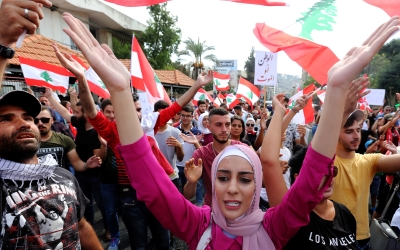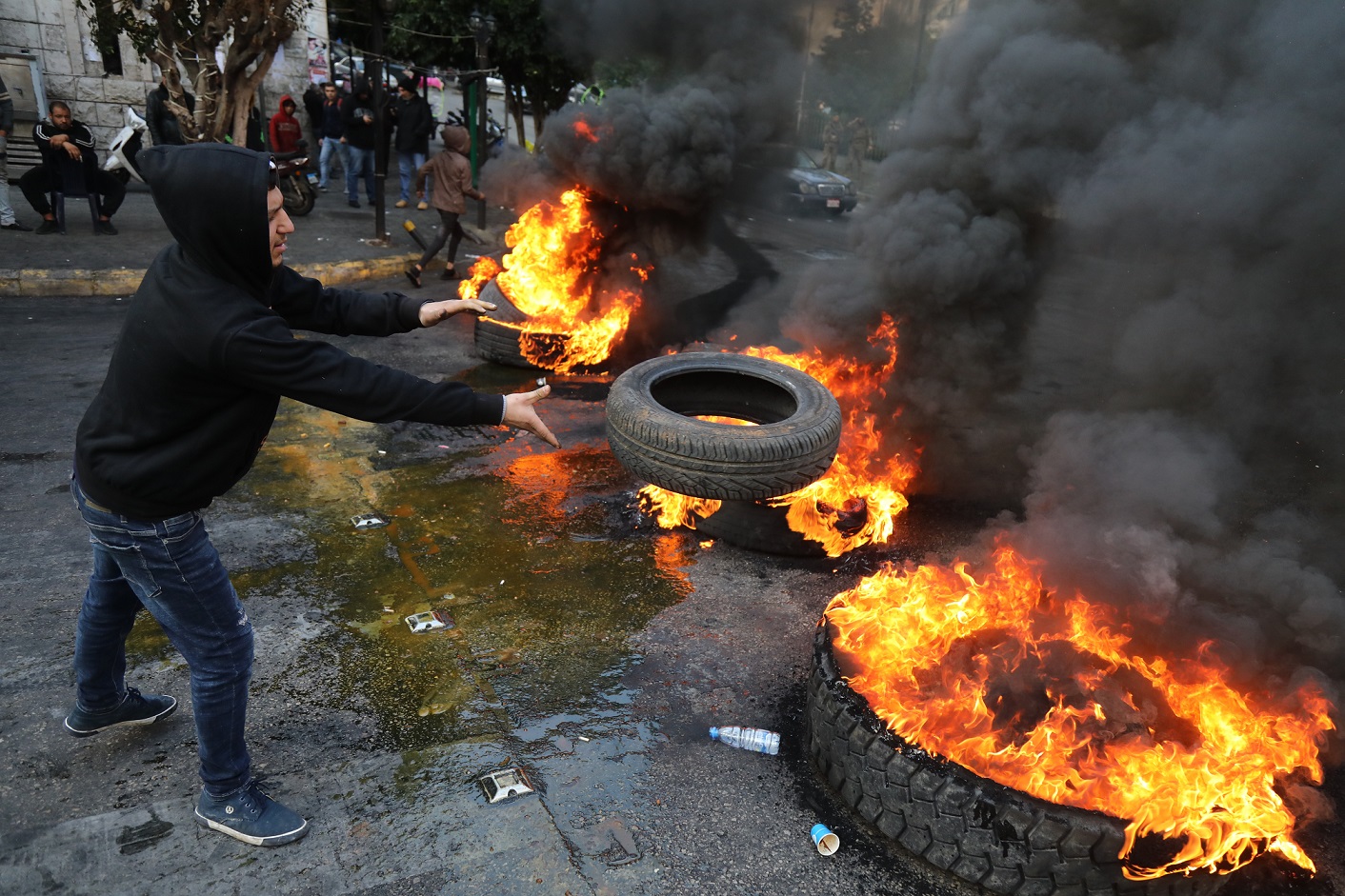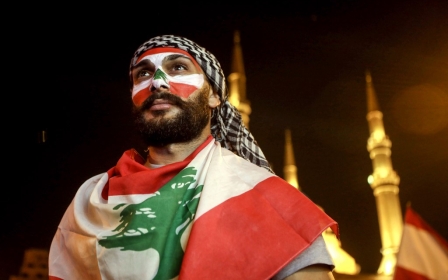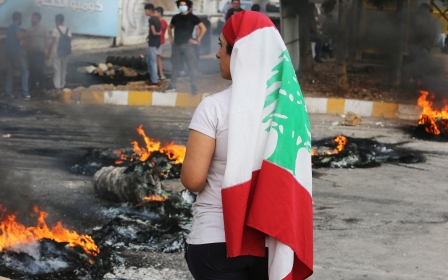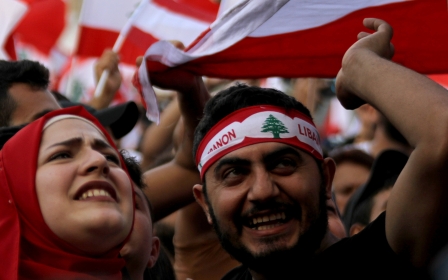Can the new government save Lebanon?
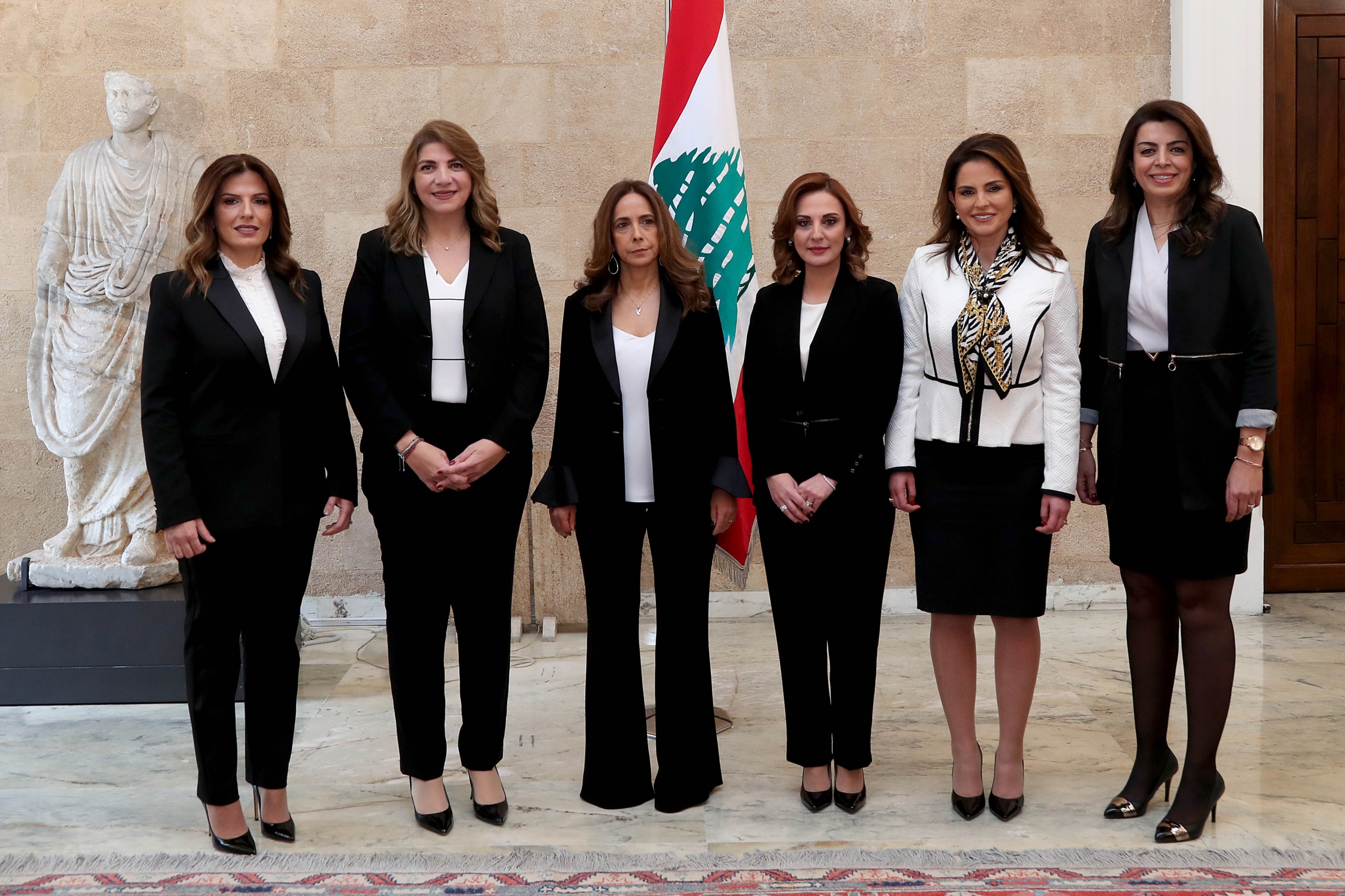
The new Lebanese government announced on Tuesday evening breaks new ground in more ways than one, as the profile of Prime Minister Hassan Diab himself clearly testifies.
Diab, appointed to the post on 19 December, does not hail from traditional political circles, unlike the heads of government who have preceded him since the end of the civil war in 1990.
The delay further fuelled the anger of Lebanese citizens already under enormous economic and social pressure
Admittedly, he is a Sunni: political offices in Lebanon are customarily allocated along religious lines, the prime minister being a Sunni, the president a Maronite Christian and the speaker of parliament a Shia - but Diab is also an academic (a vice president at the American University of Beirut) and a self-described independent.
His cabinet, downsized from 30 to 20 ministers, is another major indication of change. In Lebanon, government positions are traditionally meted out to the main political parties - a “sharing of the political pie” denounced by the protest movement that has rocked Lebanon since 17 October.
Six women in cabinet: a historic first
The government also counts an unprecedented number of women, six, in a male-dominated patriarchal system, including Zeina Akar Adra, the country’s first female deputy prime minister and defence minister.
Another novelty is the government’s so-called “technocratic” nature - Diab himself is a self-described technocrat - comprised of academic, economic and medical experts not affiliated with established political parties.
That doesn’t necessarily mean the government is apolitical. Diab’s cabinet was formed in close collaboration with the political parties that appointed him - the Free Patriotic Movement (the country’s largest Christian party founded by President Michel Aoun and headed by his son-in-law, the outgoing foreign minister, Gebran Bassil) and the Hezbollah-led March 8 Alliance.
It is therefore a “one-colour” government, backed by parties formed along different political and community lines, but that share a common regional perspective of suspicion and outright hostility when it comes to US and Saudi projects.
Hezbollah ramps up pressure
All the same, the government was formed after weeks of inter-ally wrangling. It wasn’t until Hezbollah banged its fist, going to great lengths to remove obstacles and smooth ruffled feathers, that all appetites were satisfied, and the cabinet was announced.
The delay further fuelled the anger of Lebanese citizens already under enormous economic and social pressure. Violent clashes between demonstrators and law enforcement officials broke out last week, leaving 520 injured.
Though his mandate is owed to the parties that backed him, it was Diab who set the criteria for the forming of his government, and he got what he wanted: a small government of technocrats, experts and non-affiliated ministers - and zero former cabinet members disgraced by the protests.
He also delivered on his promise to form a government in no more than six weeks, whereas it had taken Saad Hariri, the former prime minister, close to a year.
Diab was hoping to expand the dialogue to all parties, including such opposition movements as Hariri’s Future Movement, Samir Geagea’s Christian Lebanese Forces and the Progressive Socialist Party of Druze leader Walid Jumblatt. But the pro-US and Saudi parties, hostile to Damascus and Tehran, refused to be associated with his government.
Denying Diab's legitimacy among Sunnis
Hariri, Diab’s most outspoken critic, intends to deny his legitimacy among Sunni populations. Shortly after the cabinet was announced, Hariri supporters across the country flooded the streets in rejection of the new government.
Not everyone concurs. Sheikh Mohammed Nokkari, a Sunni religious judge and the former secretary general of Dar el-Fatwa, Lebanon’s Sunni authority, told Middle East Eye: “Though the circumstances surrounding Mr Diab’s appointment and the formation of his government are hardly ideal, we should give them a chance.
Diab promises to create an independent judiciary, to combat corruption and unemployment, to recover pilfered public funds and to work to improve the electoral law. It is a tall order
“Other communities, and not just the Sunnis, are also opposed to the government. In any case, let’s wait and see what comes of his talks with the mufti [the highest Sunni religious authority],” he added.
Despite the enormous political stakes, Diab seems determined to move ahead. He has set out the broad outlines of a government plan tailored to the demands of the popular protest movement - what he calls “a revolution”. He promises to create an independent judiciary, to combat corruption and unemployment, to recover pilfered public funds and to work to improve the electoral law.
It is a tall order for a country plagued by social and political instability.
The views expressed in this article belong to the author and do not necessarily reflect the editorial policy of Middle East Eye.
This article was translated from the MEE French edition.
Middle East Eye propose une couverture et une analyse indépendantes et incomparables du Moyen-Orient, de l’Afrique du Nord et d’autres régions du monde. Pour en savoir plus sur la reprise de ce contenu et les frais qui s’appliquent, veuillez remplir ce formulaire [en anglais]. Pour en savoir plus sur MEE, cliquez ici [en anglais].



